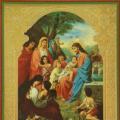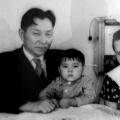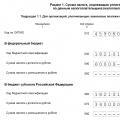The state system of Great Britain - Государственный устрой Великобритании
Great Britain is a parliamentary monarchy (1)
. The power of the Queen is limited by the Parliament. It means that the sovereign reigns (2)
but does not rule. Britain does not have a written constitution, but a set of laws (3)
. Parliament is the most important authority in. Britain. It comprises (4)
the House of Commons, the House of Lords and the Monarch in her constitutional role. In reality the House of Commons is the only one of the three, which has true power.
The Monarch serves formally (5)
as head of state. But the Monarch is expected to be politically neutral (6)
and should not make political decisions. The present sovereign of Great Britain is Queen Elizabeth II (the second). She was crowned (7)
in Westminster Abbey in 1953.
The House of Commons has 650 elected Members of Parliament (MPs), each representing a local constituency (8)
.
They are elected by secret ballot. General elections are held every five years. The country is divided into 650 constituencies. All citizens aged 18 have the right to vote (9)
, but voting is not compulsory in Britain. The candidate polling the largest number (10)
of votes in a constituency is elected. The functions of the House of Commons are legislation and scrutiny (11)
of government activities. The House of Commons is presided over by the Speaker. The Government appoints the Speaker.
The House of Lords comprises about 1,200 peers (12)
. It is presided over by the Lord Chancellor. The House of Lords is made up of hereditary (13)
and life peers and peeresses and the two archbishops (14)
and 24 most senior bishops of the established Church of England. The House of Lords has no real power. It acts rather as an advisory council (15)
.
There are few political parties in Great Britain thanks to the British electoral system. They are the Conservative Party, the Labour Party and the Liberal Democratic Alliance (16)
. Each political party puts up one candidate for each constituency. The one who wins the most votes is elected MP for that area. The party which wins the most seats in Parliament forms the Government. Its leader becomes the Prime Minister. As head of the Government the Prime Minister appoints ministers, of whom about 20 are in the Cabinet - the senior group which takes major policy decisions (17)
. Ministers are collectively responsible (18)
for government decisions and individually responsible for their own departments.
The second largest party forms the official Opposition, with its own leader and "shadow cabinet" (19)
. The Opposition has a duty to criticise government policies and to present an alternative programme (20)
.
The new bills are introduced and debated in the House of Commons. If the majority of the members are in favour of a bill it goes to the House of Lords to be debated. The House of Lords has the right to reject a new bill twice. But after two rejections they are obliged to accept it. And finally the bill goes to the Monarch to be signed. Only then it becomes a law.
Parliament is responsible for British national policy. Much legislation applies through out Britain. England and Wales, Scotland and Northern Ireland have their own legal systems with differences in law and practice.
Великобритания - парламентская монархия. Власть королевы ограничивается парламентом, что означает, что монарх царит, и не руководит. Британия не имеет собственной конституции, а лишь свод законов. Парламенту предоставлена самая большая власть. В его состав входят: Палата общин, Палата лордов и монарх, в своей конституционной роли. На самом деле весомую силу имеет лишь Палата общин.
Монарх выполняет функцию главы государства формально. Он должен занимать нейтральную политическую позицию и не принимать политических решений. Сегодняшним монархом является Королева Елизавета, что была коронована в Вестминстерском Аббатстве в 1953 году.
В состав Палаты общин входит 650 членов парламента, представляющих местные избирательные округа.
Они избираются тайным голосованием. Всеобщие выборы проводятся каждые 5 лет в 650-ти избирательных округах, на которые поделена вся страна. Все граждане в возрасте от 18-ти лет имеют право голосовать, хотя это и не обязательно. Избранным считается тот кандидат, набравший наибольшее количество голосов. Функцией Палаты общин является законодательство и внимательное изучение правительственных дел. Палату общин возглавляет председатель, назначаемый правительством.
Палата лордов состоит из 1200 пэров. Председательствует здесь лорд-канцлер. Сюда входят наследственные и еще живые пери, два архиепископы и 24 старейших за саном епископы, которые избираются на Английском церковью. На самом деле Палата лордов не владеет полной силой влияния на политику. Она работает в большей мере как консультационный совет.
Благодаря британской выборной системе в Великобритании есть такие политические партии: Консервативная, Лейбористская партии и Либерально-демократический союз. Каждая политическая партия предлагает своего кандидата в каждом избирательном округе. Тот, кто наберет больше всего голосов, станет членом парламента от этого округа. Партия, которая набирает больше мест в парламенте, формирует правительство. Ее лидер становится премьер-министром. Как председатель правительства премьер-министр назначает министров, 20 из которых входят в Кабинет министров, который принимает важнейшие политические решения. Министры является коллективно ответственными за решение правительства и индивидуально ответственными за работу в своих министерствах.
Вторая крупнейшая партия формирует оппозицию с собственным лидером и "теневым кабинетом". Ее обязанностью является критика правительственной политики и внесение альтернативной программы.
Новые законы представляются на рассмотрение в Палату общин и обсуждаются здесь. Если большинство членов пришли к единому мнению относительно данного закона, то он передается в палату лордов для дальнейшего обсуждения. Палата лордов имеет право отменить новый закон дважды и уже после второго отклонения обязана принять его. Наконец закон попадает в руки монарха на подпись. Только теперь можно считать его законом в полной мере.
Парламент отвечает за британское национальное Законодательство, которое распространяется на территорию всей Британии. Правда, Англия и Валия, Шотландия и Северная Ирландия имеют собственные законодательные системы с разногласиями в законах и в их практическом применении.
Vocabulary
1. monarchy ["mɔnəkɪ] - монархия
2. sovereign reigns - монарх царит
3. set of laws - свод законов
4. comprise - содержать в себе
5. serves formally -В формально выступает
6. neutral ["njuːtr(ə)l] - нейтральный
7. to be crowned - быть коронованным
8. a local constituency - местный избирательный округ
9. vote - голосовать
10. polling the largest number - тот, который получил наибольшее количество голосов
11. scrutiny - внимательное изучение
12. peer - пэр (почетный титул в Великобритании)
13. hereditary - потомственный
14. archbishop - архиепископ
15. it acts rather as an advisory council - действует более как консультативный совет
16. alliance - союз
17. to take decisions - принимать решения
18. to be (responsible for) - быть ответственным (по)
19. "shadow cabinet - "теневой кабинет"
20. to present an alternative programme - вносить альтернативную программу
Questions
1. What is the most important authority in Great Britain?
2. Is the Monarch expected to be politically active?
3. How are the Members of Parliament elected?
4. What are the main political parties in Great Britain?
5. What are the functions of the House of Commons?
- (Parliament, British), высший законодат. орган в Великобритании и Сев. Ирландии. Состоит из монарха как главы гос ва и двух палат, заседающих в Вестминстерском дворце, па латы лордов и палаты общин. Премьер мин, и кабинет (руководящая группа мин … Всемирная история
Парламент Великобритании - Здания Парламента (Вестминстерский дворец) Ве … Википедия
Процедура выборов в парламент Великобритании - Великобритания парламентская монархия во главе с королевой. Парламент является высшим законодательным органом в Соединенном Королевстве и Королевских заморских территориях. Парламент двухпалатный, включает верхнюю палату, называемую Палатой… … Энциклопедия ньюсмейкеров
Парламент Антигуа и Барбуды - (англ. Parliament of Antigua and Barbuda) законодательный орган Антигуа и Барбуды. Состав Современный парламент состоит из монарха и двух палат: Королева Великобритании Верхняя палата Сенат Антигуа и Барбуды (англ. Senate of Antigua and … Википедия
Парламент - (Parliament), высший законодательный орган Великобритании. В его составе король как глава гос ва и две палаты: палата общин и палата лордов. Возник в 13 в. в ходе встреч короля с членами его пр ва и наиб, влиятельными представителями знати. Со… … Всемирная история
ПАРЛАМЕНТ - (англ. parliament от фр. раr1ег говорить) родовое название высшего представительного и законодательного органа в демократических государствах. Собственно П. этот орган именуется в Великобритании, Франции, Италии, Канаде, Бельгии и др.; в США и… … Юридический словарь
Парламент Шотландии - Зал заседаний шотландского парламента. Великобритания … Википедия
Парламент - У этого термина существуют и другие значения, см. Парламент (значения) … Википедия
парламент - а; м. [англ. parliament, франц. parlement] 1. Высшее государственное законодательное представительное собрание, построенное целиком или частично на выборных началах. Войти в состав парламента. Депутат парламента. Выборы в парламент. // Шутл. О… … Энциклопедический словарь
Парламент Австралии - Эта статья является частью темы Политика и правительство Австралии … Википедия
Парламент Новой Зеландии - Политика Портал:Политика Новая Зеландия Эта статья часть серии … Википедия
Книги
- Английский язык для юристов. Учебник. В 2 частях. Часть 2 , . Настоящий учебник подготовлен коллективом авторов Кафедры английского языка № 1 Московского государственного юридического университета имени О. Е. Кутафина (МГЮА)и является второй частью… Купить за 290 руб
- Английский язык для юристов. Учебник. Часть 2 , . Настоящий учебник подготовлен коллективом авторов кафедры английского языка № 1 Московского государственного юридического университета имени О. Е. Кутафина (МГЮА)и является второй частью…
Parliament. The Palace of Westminster.
Britain is administered from the Palace of Westminster in London. This is also known as the Houses of Parliament. Parliament is made up of two chambers - the House of Commons and the House of Lords.
The members of the House of Lords are not elected: they qualify to sit in the House because they are bishops of the Church of England, aristocrats who have inherited their seats from their fathers, people with titles. There has been talk of reform in this century because many Britons think that this system is undemocratic.
The House of Commons, by contrast, has 65 0 seats which are occupied by Members of Parliament (MPs) who are elected by the British public. The United Kingdom is divided into constituencies, each of which has an elected MP in the House of Commons.
Each of the major political parties appoints a representative (candidate) to compete for each seat. Smaller parties may have a candidate in only a few constituencies. There may be five or more parties, fighting for one seat, but only one person - the candidate who gets the greatest number of votes - can win.
Some parties win a lot of seats and some win very few, or none at all. The Queen, who is the Head of State, opens and closes Parliament. All new laws are debated (discussed) by MPs in the Commons, then debated in the Lords, and finally signed by the Queen.
All three are
part of Parliament in Britain.
Парламент. Вестминстерский дворец.
Правительство Британии находится в Вестминстерском дворце в Лондоне. Вестминстерский дворец известен также как Дом парламента. Парламент состоит из двух палат - палаты общин и палаты лордов.
Членов палаты лордов не избирают: они являются членами парламента, потому что они - епископы английской церкви и аристократы, которые унаследовали свои места от отцов, титулованных особ. Идут разговоры о реформе этой системы в настоящем столетии, т. к. многие британцы не считают такую систему демократичной.
Палата общин, напротив, имеет 650 мест. Эти места занимаются членами парламента, избираемыми британским народом. Соединенное Королевство разделено на избирательные округа, каждый из которых имеет своего представителя (члена парламента) в палате общин.
Каждая из основных политических партий назначает представителя (кандидата), чтобы бороться за место в парламенте. Меньшие партии могут иметь кандидатов только лишь в нескольких округах. За одно место могут бороться пять и более партий, но победить может лишь один человек -- кандидат, получающий самое большое количество голосов.
Некоторые партии получают много мест, другие - совсем мало или вообще не получают. Королева, глава государства, открывает и закрывает парламент. Все законы обсуждаются членами палаты общин, затем - членами палаты лордов и, наконец, подписываются королевой.
Парламент в Британии составляют:
королева, палата общин, палата лордов.
Vocabulary:
1. What is
Parliament made up of?
2. Are the members of the House of Lords elected?
3. What do Britons think about this system?
4. Who appoints a representative to compete for each seat?
5. Who can win the seat?
6. Who is the Head of State?
Vocabulary:
to be made up of - состоять из
elected - избираемый
inherited - унаследованный
seat - место
constituency - избирательный округ
candidate - кандидат
vote - голосование, право голоса
The British Parliament is the oldest in the world. It originated in the 12th century as Witenagemot, the body of wise counsellors whom the King needed to consult pursuing his policy. The British Parliament consists of the House of Lords and the House of Commons and the Queen as its head. The House of Commons plays the major role in law-making. It consists of Members of Parliament (called MPs for short). Each of them represents an area in England, Scotland, Wales and Ireland. MPs are elected either at a general election or at a by-election following the death or retirement. Parliamentary elections are held every 5 years and it is the Prime Minister who decides on the exact day of the election. The minimum voting age is 18. And the voting is taken by secret ballot. The election campaign lasts about 3 weeks, The British parliamentary system depends on political parties.
The party which wins the majority of seats forms the government and its leader usually becomes Prime Minister. The Prime Minister chooses about 20 MPs from his party to become the cabinet of ministers. Each minister is responsible for a particular area in the government. The second largest party becomes the official opposition with its own leader and "shadow cabinet". The leader of the opposition is a recognized post in the House of Commons.
The parliament and the monarch have different roles in the government and they only meet together on symbolic occasions, such as coronation of a new monarch or the opening of the parliament.
In reality, the House of Commons is the one of three which has true power. The House of Commons is made up of six hundred and fifty elected members, it is presided over by the speaker, a member acceptable to the whole house. MPs sit on two sides of the hall, one side for the governing party and the other for the opposition. The first 2 rows of seats are occupied by the leading members of both parties (called "front benches") The back benches belong to the rank-and-life MPs. Each session of the House of Commons lasts for 160-175 days. Parliament has intervals during his work. MPs are paid for their parliamentary work and have to attend the sittings. As it was mentioned above, the House of Commons plays the major role in law making. The procedure is the following: a proposed law ("a bill") has to go through three stages in order to become an act of parliament; these are called "readings".
The first reading is a formality and is simply the publication of the proposal. The second reading involves debate on the principles of the bill; it is examination by parliamentary committee. And the third reading is a report stage, when the work of the committee is reported on to the house. This is usually the most important stage in the process. When the bill passes through the House of Commons, it is sent to the House of Lords for discussion, when the Lords agree it, the bill is taken to the Queen for royal assent, when the Queen sings the bill, it becomes act of the Parliament and the Law of the Land. The House of Lords has more than 1000 members, although only about 250 take an active part in the work in the house. Members of this Upper House are not elected, they sit there because of their rank, and the chairman of the House of Lords is the Lord Chancellor. And he sits on a special seat, called "WoolSack" The members of the House of Lords debate the bill after it has been passed by the House of Commons.
Parliament. The Palace of Westminster.
Britain is administered from the Palace of Westminster in London. This is also known as the Houses of Parliament. Parliament is made up of two chambers - the House of Commons and the House of Lords.
The members of the House of Lords are not elected: they qualify to sit in the House because they are bishops of the Church of England, aristocrats who have inherited their seats from their fathers, people with titles. There has been talk of reform in this century because many Britons think that this system is undemocratic.
The House of Commons, by contrast, has 65 0 seats which are occupied by Members of Parliament (MPs) who are elected by the British public. The United Kingdom is divided into constituencies, each of which has an elected MP in the House of Commons.
Each of the major political parties appoints a representative (candidate) to compete for each seat. Smaller parties may have a candidate in only a few constituencies. There may be five or more parties, fighting for one seat, but only one person - the candidate who gets the greatest number of votes - can win.
Some parties win a lot of seats and some win very few, or none at all. The Queen, who is the Head of State, opens and closes Parliament. All new laws are debated (discussed) by MPs in the Commons, then debated in the Lords, and finally signed by the Queen.
All three are
part of Parliament in Britain.
Парламент. Вестминстерский дворец.
Правительство Британии находится в Вестминстерском дворце в Лондоне. Вестминстерский дворец известен также как Дом парламента. Парламент состоит из двух палат - палаты общин и палаты лордов.
Членов палаты лордов не избирают: они являются членами парламента, потому что они - епископы английской церкви и аристократы, которые унаследовали свои места от отцов, титулованных особ. Идут разговоры о реформе этой системы в настоящем столетии, т. к. многие британцы не считают такую систему демократичной.
Палата общин, напротив, имеет 650 мест. Эти места занимаются членами парламента, избираемыми британским народом. Соединенное Королевство разделено на избирательные округа, каждый из которых имеет своего представителя (члена парламента) в палате общин.
Каждая из основных политических партий назначает представителя (кандидата), чтобы бороться за место в парламенте. Меньшие партии могут иметь кандидатов только лишь в нескольких округах. За одно место могут бороться пять и более партий, но победить может лишь один человек -- кандидат, получающий самое большое количество голосов.
Некоторые партии получают много мест, другие - совсем мало или вообще не получают. Королева, глава государства, открывает и закрывает парламент. Все законы обсуждаются членами палаты общин, затем - членами палаты лордов и, наконец, подписываются королевой.
Парламент в Британии составляют:
королева, палата общин, палата лордов.
Vocabulary:
1. What is
Parliament made up of?
2. Are the members of the House of Lords elected?
3. What do Britons think about this system?
4. Who appoints a representative to compete for each seat?
5. Who can win the seat?
6. Who is the Head of State?
Vocabulary:
to be made up of - состоять из
elected - избираемый
inherited - унаследованный
seat - место
constituency - избирательный округ
candidate - кандидат
vote - голосование, право голоса




